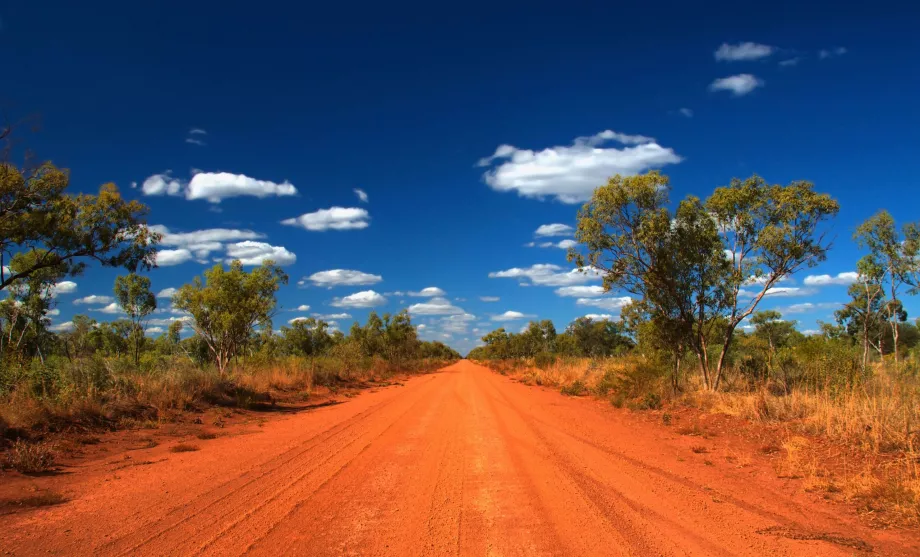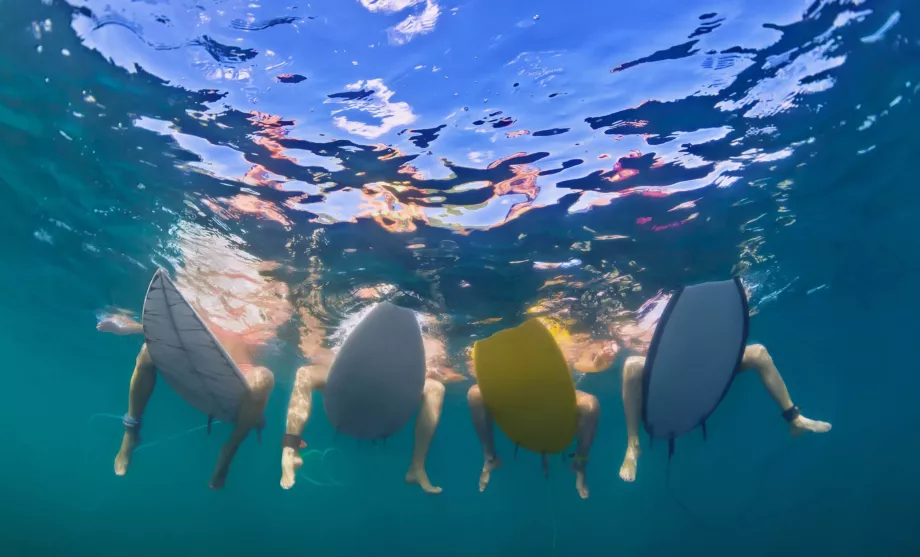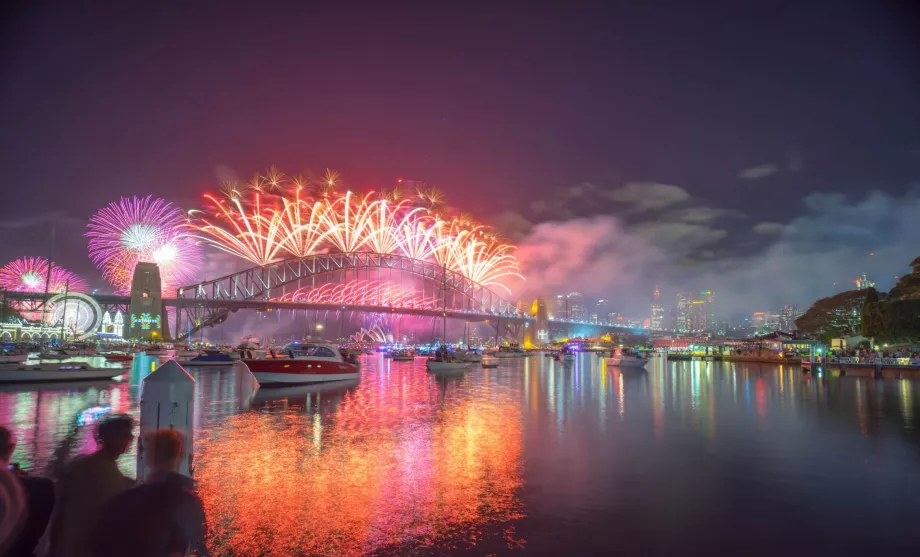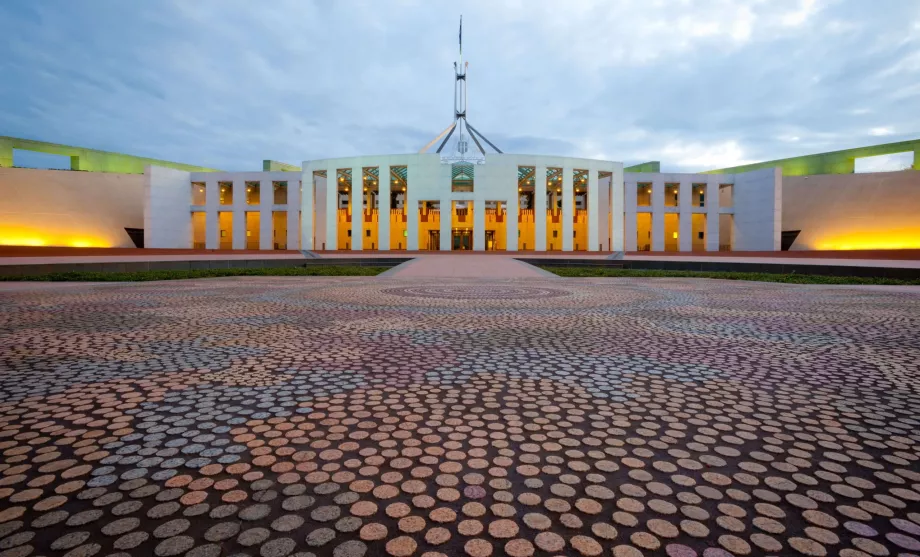Culture and history of Australia

Do you speak anything other than English in Australia? What are Australians like and when are shops closed in Indonesia?
Find a hotel in Australia in advance
Language
Australia is a former British colony and English is therefore the main language.
You can't speak any other language than English in Australia.
Australian English has a bit of a specific accent, but it is very easy to understand. Because Australians are used to immigrants and tourists, they will very readily simplify or slow down their speech if you explain that you don't speak English very well.
People
Australia is a country of many peoples and most of them live on the coast. Despite covering over 7 million square kilometres, there are just under 30 million people living here. Australia therefore has one of the lowest population densities in the world.
The largest percentage of the population is descended from the Old English.
The influence of immigrants continues to grow. The Asian population in particular, such as the Chinese, Indians, Filipinos and Indonesians, is expanding massively in the centres of the main cities. European and South American influences can also be seen.
Australia has very strict conditions for obtaining citizenship or even being able to immigrate at all, which is why the increased immigration of recent years has not caused any significant negative effects in Australia.
Australians are a kind and friendly people. They like to play a lot of sports and spend time outdoors, they don't worry too much about anything, but at the same time they are efficient and what you agree on is what you pay for.
Don't be afraid to ask anyone anything, you will almost always get very friendly answers.
Holidays
Public holidays are proclaimed by each Australian union state on its own terms. Most public holidays are common to the whole country, but some days may vary state by state.
If a holiday falls on a weekend, the day off is always automatically moved to the next Monday. This rule does not apply only to New Year's Day on January 1.
Expect to see more people on the road than usual on these days. Australians mainly use the holidays to relax, picnic, barbecue with family or friends and watch sports matches or camp outdoors.
Working days
Banks and offices are closed on these days. For tourists, the biggest change may be in public transport timetables, with significantly fewer journeys on Sunday schedules. Some bus routes may not run at all, and it is common for public transport to start running as much as 2 hours later on Sundays and public holidays than on normal days (from about 7am).
Supermarkets in some countries are obliged to be closed or have restricted opening hours on certain days, while in others shopping is unrestricted.
Stores at airports, train stations or smaller mini-markets such as 7-Elevens always remain open.
- 1 January / New Year - celebrated in all Australian states
- 26 January / Australia Day - celebrated in all Australian states
- 2nd Monday in February / Royal Hobart Regatta - water sport event, celebrated only in southern Tasmania in the areas around the largest city of Hobart
- 1st Monday in March / Labor Day - celebrated only in Western Australia
- 2nd Monday in March / Labour Day - celebrated only in the Australian Capital Territory, South Australia, Tasmania, Victoria
- Good Friday + Easter Monday / variable dates during spring - celebrated in all Australian states
- 25 April / Anzac Day - celebrated in all Australian states (one of Australia's most important holidays)
- 1 May / Labor Day - celebrated only in the Northern Territories, Queensland
- 1st Monday after 27 May / Reconciliation Day - celebrated only in the Australian Capital Territory
- 1st Monday in June / Western Australia Day - celebrated only in Western Australia
- 2nd Monday in June / Birthday of the British Monarch - celebrated only in the Australian Capital Territory, New South Wales, Northern Territory, South Australia, Tasmania, Victoria
- 1st Monday in August / Picnic Day - celebrated only in the Northern Territory
- 1st Wednesday after 9 August / Royal Queensland Show (Ekka) - celebrated only in Brisbane
- Variable date in September or October / Birthday of the British Monarch - celebrated only in Western Australia
- 1st Monday in October / Labor Day - celebrated only in the Australian Capital Territory, New South Wales, Queensland, South Australia
- 25 and 26 December / Christmas Day - celebrated in all Australian states
History in a nutshell
The year was 1770 when Thomas Cook, a British seafarer, first docked at Botany Bay, the site of what is now Sydney International Airport.
Cook was not the first European to set foot on Australian soil. The smallest continent had already been sighted in the early 17th century by Dutchman Wilem Jansz and then by Abel Tasman, after whom Tasmania and the strait dividing Australia and New Zealand were named. Both were disappointed by the apparent inhospitability of the territory and never established any colonies.
Europeans were not the first inhabitants to settle the territory. The history of people on this continent is more than 45,000 years old, when the land began to be settled from Southeast Asia.
We now return to English colonisation, which developed mainly in the area of present-day Sydney. We probably all know that Australia served as a penal colony from its earliest days. The First Fleet at Port Jackson, led by Arthur Philliphe, made history. That is why 26 January 1988 later became Australia's National Day.
Over time, Australia began to become independent from British rule, surviving the impact of the gold rush, and independent colonies were formed, which on 1 January 1901 established the so-called Commonwealth of Australia. Australia is still in a personal union with the United Kingdom and the head of state is replaced by the British monarch, although now only formally.
Two pearls in conclusion. The present name of the continent, Australia, comes from the Latin Terra Australis, the Southern Land. This name was proposed as early as 1814 by Matthew Flinders.
After the formation of the Commonwealth of Australia, the question of which city would be the capital remained in the air. After a tenacious tug-of-war between Sydney and Melbourne, a completely new city was built halfway between them - Canberra.
Festivals
Australians live a developed cultural life. There's always something going on in that country, especially in the Australian summer months.
The country has the biggest arts festivals in the southern hemisphere, such as the Sydney Festival and the Adelaide Fringe Festival.
You can also see the openness of this country during the biggest gay and lesbian cultural festival, Mardi Gras, in February/March.
In Sydney, the ViviD Festival takes place during May and June, full of light shows and music. Then in October there's the Sculpture by the Sea art exhibition from Bondi beach around the coast. There are plenty of side events in each city, music or film, food, art, technology or theatre festivals. It's a good idea to study carefully the cultural events in the planning period of your arrival so you don't miss anything.
Tourism
If you're planning to visit this diverse and vast country, it's a good idea to think about what your destination will be.
For most people, this is their first and last trip to Australia, mainly because of the costs involved. There are definitely plenty of options to choose from. You'll get a taste of diversity in both the cities and the countryside.
You can lie on the beach, trek through the mountains, go scuba diving or discover art in galleries or on the streets of cities. Australia is a very tourist friendly country and the facilities are excellent for this purpose. You may see deteriorating conditions especially if you venture more inland.
Any questions left?
If you have any questions or comments about the article...




